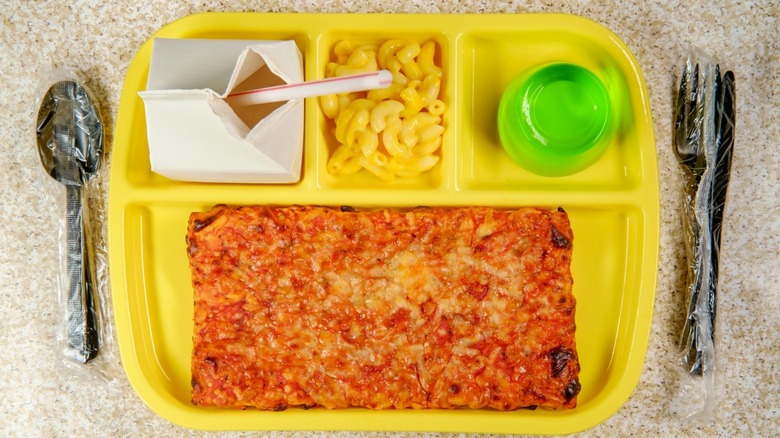The Major Change To School Lunches That Will Stretch Families' Food Budgets
When the coronavirus pandemic hit, it nearly felt like the world stopped. Many people were laid off or unable to continue working either temporarily or permanently as daily life was disrupted. According to The World Bank, among a sampling of 35 countries, 2/3 of households with children are thought to have suffered some kind of income loss since the pandemic started.
The U.S. government was able to provide some relief in an effort to ease the financial burden on Americans. There were a variety of protectionary and stimulus measures, including an eviction ban, plus a pause on people having to pay back student loans. Also included were waivers for universally free school lunches, which granted schoolchildren free access to lunch regardless of their economic status.
For many American parents, the waivers were a huge help that allowed their children to get a fortifying meal for free, with the added bonus of not having to think up lunch ideas for their kids on a tight (or sometimes nonexistent) budget. Now, though, a big change is looming for the federal waivers that made the lunches possible, potentially jeopardizing an important lifeline.
Free school lunches are set to end on June 30
The USDA has been reimbursing school districts for grab-and-go meals since shortly after the pandemic started, and it opted to continue the program through the most recent school year. This important school meal program has given millions of kids access to free food. However, according to Bon Appétit, the free lunches will stop on June 30 if the government does not decide to extend the waivers that allowed it in the first place.
EdSource reports that one of the biggest advantages of the plan was that districts did not need to check the financial status of those requesting free meals. "With [the waivers], schools are able to cut through red tape and allow kids to eat for free," said Lisa Davis, senior vice president of national child hunger organization Share Our Strength.
Various organizations have been requesting that Congress extend the waivers once more, especially since so many children have benefitted from summer lunch programs. According to the humanitarian aid organization Save the Children, approximately 17 million children in the U.S. are living with food insecurity, which is an increase from 11 million prior to the pandemic.

